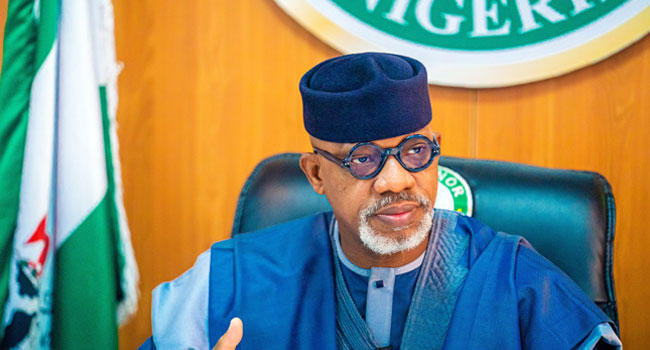By Felicia Nwosu
These days, businesses and organisations are faced with a lot of challenges as a result of the still ravaging Covid-19 pandemic and the resulting global recession. Organisations are therefore rethinking their business models in order to realign their businesses with the realities of a post Covid-19 business climate. The effect of the recession has indicated that partnerships, collaborations and mergers with other industry players may be helpful and valuable in the long-run. This is due to the fact that partnerships give organizations the advantage of long term economies of scale and system streamlining. This will eventually lead to reduced costs of doing business and positively impact the bottomline.
Yomi Badejo-Okusanya, Group Managing Director, CMC Connect, emphasised this and urged agencies and brands to learn from the success of Exxon and Mobil merger. The duo merged in a deal valued at $81 billion. Today, the merged company is called ExxonMobil Corporation and it has created one of the world’s preeminent oil companies with revenues of $200 billion and worldwide production of 2.5 million barrels of crude oil per day. This is definitely a good example of a merger that works. He noted that participation in collaborative problem solving helps to further advance the industry by driving technology development across the global supply chain, creating a more competitive landscape, partnering with leading experts can also help influence the course of innovation and increase research funding to perpetuate brand’s growth.
Giving his thought from the experiential perspective, Tade Adekunle, the President, Experiential Marketers Association of Nigeria (EXMAN), noted that the impact of the pandemic affected brands at different levels, and so, it will be difficult for most agencies and brands to stand successfully on their own. He advised brand managers to look outside the box for means of survival by streamlining with new products or services while focusing more on the real needs of the consumers.
According to him, brands need to come together with ideas and resources as it will serve as an opportunity to understand how to meet the needs of consumers. “Now, we can’t do live events anymore; we can’t go to the open market to do activation; how else can we create that experience between brands and consumers? What is important is re-training our colleagues and increase collaborations among agencies and brands as this is key in this critical time of uncertainty,” he said.
Synergy, he added, will go a long way in reducing financial pressure on companies trying to meet targets. The EXMAN president advised that meeting targets should not be a company’s priority over the consumer; instead, they should introduce fair marketing actions to strengthen brands and keep consumers’ loyalty alive during challenging times and economic hardships like what we have now.
Shedding more light on how brand managers can confront their challenges through collaborations, Femi Adelusi, Founder/ Group CEO of BrandEye/ Mediaplus, said: “In driving better efficiency, brands should consider partnerships and collaborations, for there exists lots of opportunities in this area, particularly for none competing brands. Agencies have major roles to play as they manage portfolios of brands. They should plan on pulling resources and ideas of various clients together to drive better value and impact marketing investment.”
Andrew Hanlon, Managing Director of TVC Communications, who recounted practical ways his brand was able to deal with brand management issues, stated that where there is collaboration, processes and goals become more aligned, leading the company towards a higher success rate of achieving a common goal.
The TVC boss said: “We had a disintegrated workforce, and therefore needed to go back to the drawing board to find out the solution by seeking collaboration with advertising agencies so as to rebuild the company.”
He also emphasised the importance of having internal collaborations as well, saying, “we restrategised and re-launched to solve the problem we had within our internal organisation, and also fixed the issues we had with staff to gain their trust and respect”.
Speaking passionately from the perspective of out-of-home advertising, Emmanuel Ajufo, President, Outdoor Advertising Association of Nigeria (OAAN), and Managing Director of Opportunity To See Limited, stated that post-recession times are not ordinary, noting that extraordinary actions are required to mitigate situations, while adding that in a post-recession period, some brands do not survive. But the ability of stakeholders to appreciate and accommodate each other at such times, he opined, will help bring the brand back to life.
In his words: “For us as out-of-home media owners and members in particular, our role in the brand management synergy is to make brands come alive and connect with the target audience at all times.”
He called for proper synergy among stakeholders to enhance operations in difficult times like where we are at the moment, he urged members of the agency to support APCON’s initiative in working out modalities that will spell out the terms of engagement.
Experts in the IMC industry are of the opinion that while it may seem counterintuitive to partner with organisations competing for attention in the same industry, still many organisations can also benefit deeply by participating in collaborative problem solving, as it creates higher value for all stakeholders by creating a healthy competitive landscape, shared responsibility, and collective knowledge which engenders innovation and industry success.






Comment
No comments found.